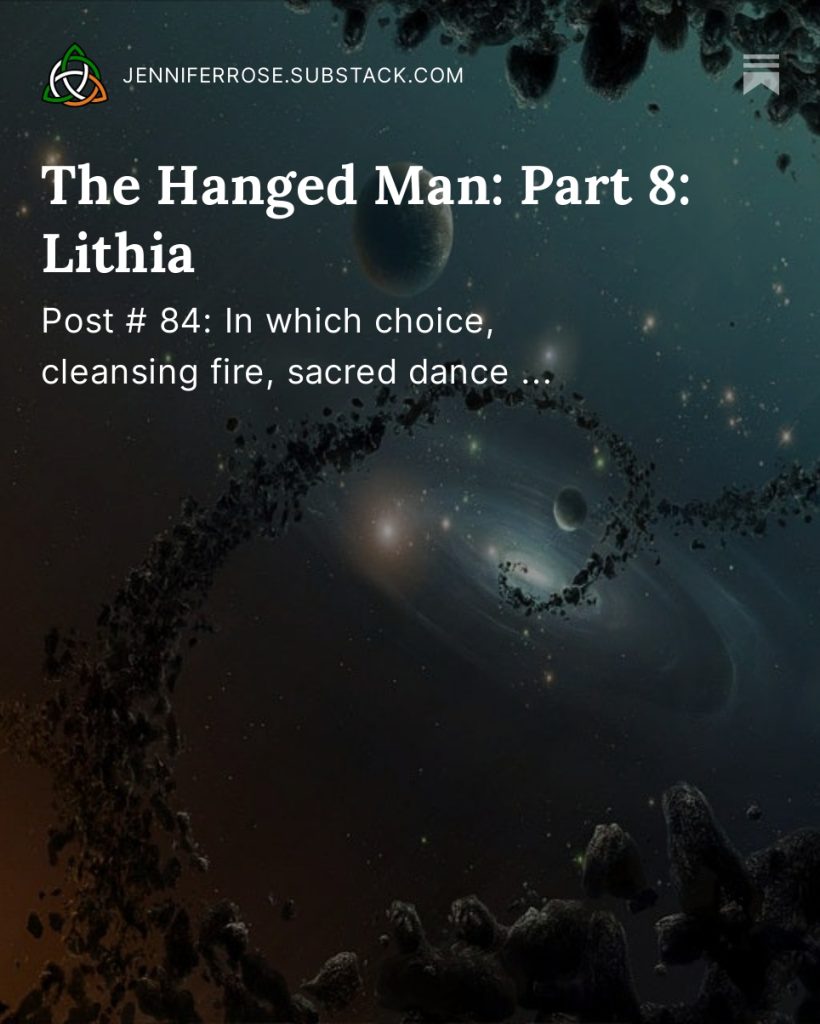by Jenny Rose | Apr 27, 2024 | A Flourishing Woman, Mind
A few weeks ago I explored self-trust. Until I wrote that piece, I had not realized how deeply I distrusted myself. (As a writer, I find nothing clarifies my thinking better than written inquiry. The process uncovers so many unconscious and hidden things.)
In that post I speculated about choosing to trust myself, as trust is a belief, and beliefs can and do change. I thought it would be interesting to consciously trust myself for a few days and see what happened.
What has happened is a profound change in my interior life and my mental health. What happened is the realization that learning to self-love, while a healing and valuable practice, was not, after all, what I most needed.
This still seems strange to me. We are certainly taught love is the greatest feeling, the closest to the Divine we can come, the best we can be as human beings. We define love endlessly, discuss it, long for it, search for it, tell ourselves it will fix everything if only we can find someone to love, if only someone will love us completely, unconditionally, forever and ever (or at least until death do us part), amen.
But my experience has taught me love is changeable and elusive. All kinds of abuse masquerades as love. We don’t all mean the same thing when we express love.

By Marianna Smiley on Unsplash
Perhaps most heartbreaking of all, we don’t always value the love that comes our way, and we may learn to distrust it. Every master manipulator in the world recognizes the power of our need for love. Once that need is used against us, we are on our guard against love.
Love hurts. Love can endure, but a withered, starving love living on memories and perhaps based on delusions or the simple call of blood is a desolate ghost haunting our hearts. Love can scar us so deeply we’re never the same.
The daily practice of loving oneself is less complicated than loving another. At the very least, I know what I mean when I say it to myself, and my self understands my demonstration of it. Nothing is lost in translation. I can trust my own love.
And there’s that word – ‘trust’. Trust and love: does one require the other, or are they separate? One is a feeling (love), and one is a belief (trust). Both can be manipulated. In terms of our love and trust of ourselves, both are highly subject to interruption or even amputation by those who influence us, especially as children. If we are repeatedly given to understand we are not lovable or not to be trusted, we internalize those beliefs before we even have language. We don’t learn to love and trust ourselves.
Internalized beliefs are enormously powerful right up until we examine them closely, at which point they can vanish like a wisp of smoke. Once we’ve seen them as false, we become conscious of their pervasive influence and our internal structure changes in astounding ways.
This is what has happened to me.
When I set out to live a few days consciously trusting myself, I realized within an hour my obsessive and unending loop of review and preview. Just like a fish in water, I have no memory of ever living any other way, so I never noticed it before. Well, that’s not true. I noticed it, I just called it anxiety. As I’ve always been anxious and expected I always would be, I didn’t think further about it.
In an example from my childhood, when I was very young, kindergarten age, my mother had a lot of pain and was quite unhappy. I had a younger brother and we had cats and dogs. In an effort to take care of my mother, I learned how to do things like make beds, sort laundry, set up the coffee maker, make orange juice in the blender (frozen concentrate), take care of the animals, tie my own shoes and teach my brother to tie his, etc.
I vividly remember lying in my bed, my brother across the room in his bed, reviewing everything I’d done that day. I had trouble with hospital corners on the beds because I wasn’t strong enough to tuck the sheets in properly under the mattress. Mom had to bend over and do them again, so I failed to help and caused her pain. I didn’t turn a sock right side out when I sorted the laundry. I could tie my own shoes, but I was baffled trying to teach my brother to tie his while facing him. And so forth and so on.
Review: I hadn’t done it right. I hadn’t helped. I hadn’t been perfect. I hadn’t made Mom happy. I had to do better. Preview: Next time I would look at every piece of laundry, be sure nothing was inside out. Next time I would remember how to sort it properly so Mom wouldn’t have to bend down and do it herself. Next time I would figure out a way to get the hospital corners right, but I wouldn’t have to face that again for a week or so. Maybe I’d be stronger or bigger? If I got behind my brother and tied his shoes from that angle, could I do it? I had to do it! It hurt Mom to bend down.
This habit, this ongoing internal review and preview, has never stopped. Whatever I’ve just done, I review it. Whatever I’m about to do, I preview it. Racing thoughts. Circular thinking. Problems with sleep and chronic tension. Adrenal overload and exhaustion. The need to distract, to make it stop. The inability to have a quiet mind. Most of us are familiar with the symptoms of anxiety.
I believe my anxiety has been rooted in my self-distrust. When I decided to behave as though I do trust myself, I became conscious of my lifelong review and preview habit, as much a part of me as my blue eyes. At the same time, I discovered the solution. The minute I catch myself either reviewing or previewing, and it’s many, many times a day, I say, “I trust you,” to myself.
And I stop. I don’t need to review. I don’t need to preview. I did the best I could, because I always do that. I’ll do the best I can, because I always do that.
“I trust you.”
I’ve also realized, after long experience of sorting through my own psyche, this self-distrust is not mine. It doesn’t smell like me. It’s not home grown. It came from someone outside me, like so many of the unmanaged, unacknowledged emotions and beliefs I’ve carried, recognized as not mine, and let go.

By Danijel Durkovic on Unsplash
I discovered, as I wrote that post on trust, I do trust myself. I’ve always had cognitive dissonance around trust. Those around me didn’t trust me, yet I trusted myself. I trust my intuition. I trust my empathy and sensitivity, I trust my intention to do the right thing, I trust my flexibility and my ability to learn. I trust my ability to love. I trust my ability to think critically and recognize the truth, no matter how unwelcome. When I assure myself of my trust, it’s not a lie. It’s a truth buried for years under trauma.
I suspect many of us review and preview, consciously or not. It’s wholly ineffective in terms of healthy functioning. It makes us less flexible and resilient. It tires us out, creates long-term chronic stress, and is a constant no-confidence vote we give ourselves. It doesn’t make us more perfect; in fact, it does the opposite because it encourages us to be brittle and fearful. It doesn’t stop us from making mistakes. It turns us away from presence and authentic expression and towards behaving like automatons with a rigid script.
It gives us anxiety.
Most of all, reviewing and previewing doesn’t keep us safe. It doesn’t help us feel loved.
The compulsive habit of reviewing and previewing took up an extraordinary amount of space in my mind and required enormous quantities of energy and attention. Without it, I feel an internal spaciousness I’ve never had before. I read more. I write more. I can rest and relax. I’m far less driven, far more comfortable in my own skin. I’m more present and mindful in the moment, and with my feelings and my body.
I’m far less anxious.
Learning to love myself has been a gift. Reclaiming trust in myself has changed my life.
Questions:
- Do you love yourself? If not, why?
- Do you trust yourself? If not, why?
- If you could only have one, would you prefer others to trust you or love you?
- What do you think is more important socially: love or trust? Why?
Leave a comment below!
To read my fiction, serially published free every week, go here: 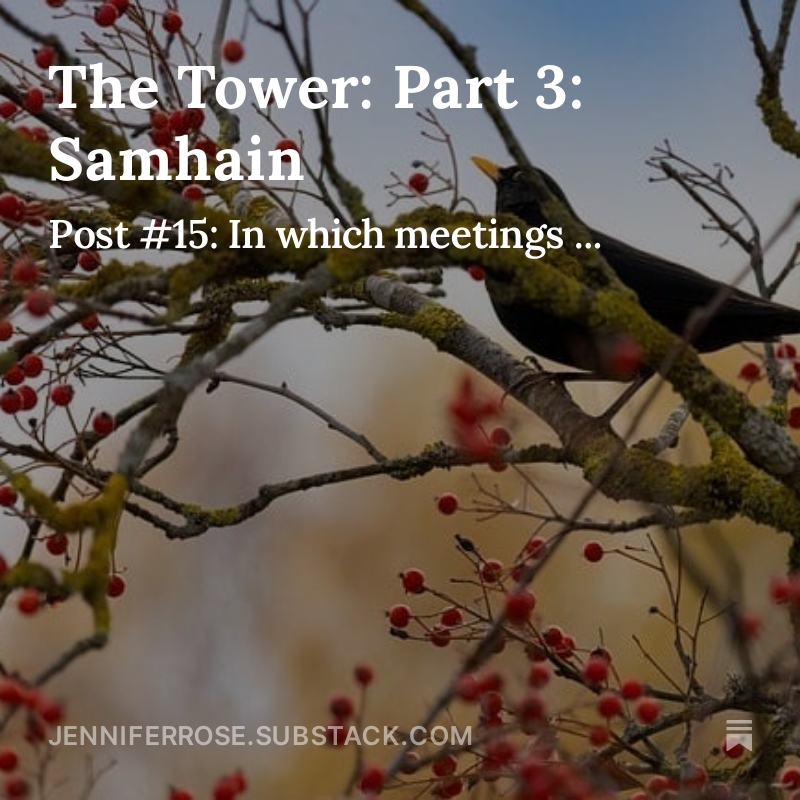
by Jenny Rose | Mar 2, 2024 | A Flourishing Woman, Mind
A couple of weeks ago a discussion I was involved in touched fleetingly upon the idea of an internal locked room, where we keep our most private thoughts and feelings. I’ve been thinking about the concept ever since, fascinated by the metaphor.

Photo by John Salvino on Unsplash
What’s in my locked room?
I don’t know. I don’t want to know, and I don’t want anyone else to know. That’s why I lock that stuff up!
But what’s in there?
I can’t let it go.
As a storyteller, I immediately recognize this common theme running through oral stories and folklore from all traditions. Something is locked or hidden. It’s forbidden to look. Lovers make a bargain. Authority demands obedience. The consequences of looking are not fully revealed, but it’s forbidden to look!
Someone always looks. Remember Pandora? Consequences ensue.
I’ve never really thought about an internal locked room until now; never considered how big it might be or what’s behind the door. I haven’t realized whatever my room contains is locked away from me as well as everyone else. All the memories I don’t want to remember. The hurts, the fears, the terrible thoughts, my unforgiveable deeds. The things about myself I can’t love.
Is it unhealthy to have a locked room? I assume everyone has one, but maybe not. I’m not uncomfortable about the presence of mine, but I question the wisdom of locking myself out. The road to self-love is long and arduous; can I practice it if I still don’t want to face (and accept or forgive) parts of who I am? That doesn’t feel like self-love.
Is a locked room adaptive or maladaptive? Could it be both? Does size matter? (You know what I mean. The size of the room!) Maybe the size is irrelevant and it’s the contents that count. 
Why do we put things in our locked room? Why did I put things in mine?
Well. I’m ashamed. Or I’m afraid of emotional pain, conflict, or of hurting others. Maybe it’s something I’m not ready to forgive myself or others for. Maybe I lock it away to fester?
Ugh.
So is the locked room about keeping me safe or others safe?
Both, I think. Others safe from me and me safe from others. But it’s also a holding place where I keep things I don’t want to deal with.
I’ve read Radical Honesty by Brad Blanton. It gave me the horrors. I’m unable to see radical honesty as a pathway to healthy cooperation and collaboration. For me, privacy is a need, not only in an external sense of spending time in solitude, but also in the internal sense. This is unsurprising from a highly sensitive, empathic person who has experienced emotional trauma and abuse. I need my privacy and I’m intensely protective of the privacy of others.
I think a locked room is an essential piece of healthy functioning.
However, we as a species have a dreadful propensity for carrying things too far.
Not me, of course. I never do that.
How do we decide what’s appropriate to share and what’s not? Working with patients and patrons at the pool facility where I’m employed, I constantly feel battered with oversharing. People, especially seniors, are lonely. They have a lifetime of memories and experience. They have health issues that frighten them. They need to talk. My team and I do our best to be compassionate listeners.
But sometimes I wish I could forget what I’ve heard. Secrets are safe with me, but the feelings that come with them are burdensome; as an empath I’ve struggled all my life to avoid taking on the emotions of others. Mostly not very successfully.
Does everyone need some privacy? Is it a continuum? Do I need too much privacy? How much is too much? Who gets to decide? Is there such a thing as being too open, too un-private, if you will? Or does everyone have a locked room, even if it’s only the size of a mousehole?
Rooms. What happens in private rooms? Clutter. Dust bunnies. Cat hair. Hoarding. Loneliness. Despair. Death. Birth. Love. Sex. Creativity. Cooking. Self-care. Self-harm. Sleeping. Using the toilet. Distraction. Playing out addictions. Violence. Weeping. Exercising. Entertainment. The human activities of daily living we all engage in.
A locked room could be a dark and bitter dungeon or a light and airy penthouse. What kind of a locked room do I have? What kind do I want? 
I hate clutter. Is my locked room cluttered? Surely not! Well, maybe. There’s 60 years’ worth of stuff in there! It’s spring. I kind of want to unlock it, open a window, air the place out. Maybe tidy up a little? Let go of some stuff? Sort? Organize? Would that be so terrible, so impossibly painful?
I have a sneaking suspicion some of what’s in my locked room is not even mine, but things given to me. Or imposed on me. I inherited toxic beliefs, experiences, and feelings from generations before me and believed it was my job to carry and preserve them.
Why am I storing what doesn’t belong to me?
Perhaps my locked room contains parts of myself I tried to get rid of and now need. Treasure, if you will. Maybe exploring it could be in part an act of reclamation.
Maybe if I open the door a tower of horror will fall on top of me and I’ll be smothered. Maybe if I don’t open the door green slime will ooze out from under it.
What’s in there?
I have some answers. My relationship with a cat named Ranger is in there, and no, I don’t want to talk about it. Every room needs a cat, in any case.
Health struggles (not serious) I’m largely unwilling to share are in there, although I have recently cracked the door and let some of them out. Carefully. Nothing bad happened.
My relationship with my children, one in particular, is in there. Now and then I’ve let a small amount of that out, too, but not often, not much, and only to my most trusted female friend.
My locked room is filled with passion. Passionate feelings of all kinds I’ve been hiding and repressing all my life. They’re strong and intense and I’ve been brutally taught they’re ugly, frightening, and obscene.
This has lately become a problem because rage is finding its way out of my locked room with disturbing results. Having escaped the room, it has no intention of being stuffed back in there and restrained. It’s a daily challenge at home, at work, and in the most unexpected contexts. It has stories to tell and I’m listening, reluctantly, but it frightens me and I’m ashamed of it. I thought I would always be able to keep it locked up and controlled. It appears I was wrong.
What else? I don’t know. These are the only specifics I can come up with. I’ll probably become conscious of more, now that I’m thinking about it.
I won’t fling the door of my locked room open and do a thorough cleanout because it’s the wellspring of my creativity, any small wisdom I’ve gained, and my empathy. As a gardener and a writer, I believe in compost. Something wild and primal in me, nurtured by Baba Yaga, loves the stink, the rot, the death, the blood, because these are the cradle of life. Nature does not waste. It’s all recycled. My experience of pain and passion empowers my writing, power I would not lessen in spite of its high price. Such power is born and rooted in fecund darkness, in muck mixed with blood and tears, in the edge of chaos, not in a bright, shining, passionless, well-aired room.
Yet I fear the passion the most. It feels like too much to release or keep contained. I fear its power to tear me apart, which is why I locked it away in the first place, and I fear its potential to hurt others. Much of it fuels my writing. I bleed some off with exercise, especially dance. But those are safety valves rather than open doors. Part of me wants to set my passion free. But for now most of it will stay in my locked room.
Questions:
- Do you have an internal locked room? How do you feel about it?
- Do you believe emotional privacy is essential, or do you think it’s unhealthy? Is it a need on a continuum?
- Are you familiar with the concept of radical honesty? What do you think about it?
Leave a comment below!
To read my fiction, serially published free every week, go here: 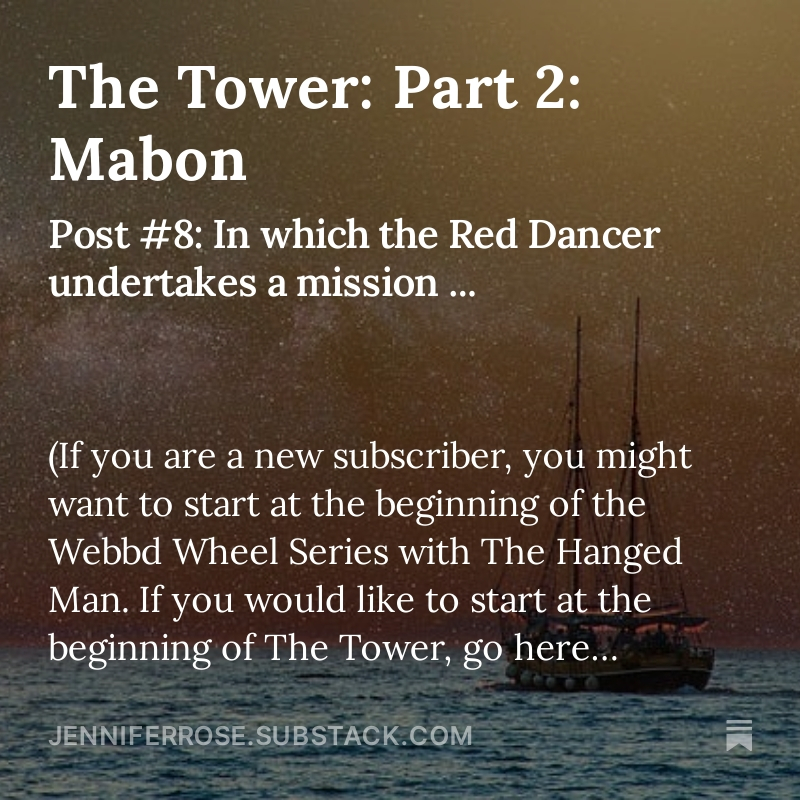
by Jenny Rose | Jan 20, 2024 | Emotional Intelligence, Feelings
(Due to a technical glitch, most of you were not notified when I last posted. You can follow this link to read the post if you missed it. I think the problem is fixed now!)
As so often happens, several threads came together to weave this post. The first was a suggestion from Seth Godin to follow our wandering mind, as that’s where our heart might be.
On first read, I smiled and thought “of course,” because following my imagination is one of my greatest pleasures.
As I considered it over a period of days, however, noting where my mind wanders, I discovered something.

Photo by John Salvino on Unsplash
I happily follow my wandering mind as long as I feel undisturbed about where it goes. The minute I start to get uncomfortable, however, I shackle it. Brutally. This might be with distraction, compulsive productivity, or starting to speed. A lot of people eat, overexercise, or get trapped in substance abuse. Let us count the ways!
I have rules about where my mind is allowed to go. I enforce my rules without mercy, in collaboration with draconian internal voices. My rigidity is not so much about my thoughts wandering as it is the feelings I have about my thoughts. This is emotional intelligence 101, and I’ve written about it before.
Thoughts and feelings are not the same thing.
In essence, then, I’m putting a lid on my feelings. Again. Still.
Sigh.
It doesn’t work. It never works, and I know this, but I do it anyway.
I do it for the same reason we all attempt to avoid painful feelings. They’re painful! Avoidance is easier than allowing ourselves to feel them, find healthy ways to express them, and let them go.
How many thoughts do we have in a day? I suspect most of us chew on the same preoccupations day after day, whether our thoughts engender feelings of rage, grief, fear, or shame, or a combination du jour. Uncomfortable territory. Also highly addictive territory. I’m chagrined to admit my own attraction to struggle. It’s so easy! Which is ridiculous, because it makes everything much, much harder than it needs to be, physically, emotionally, and generally.
Maybe what I mean is it’s so familiar!
As humans, we have an irresistible compulsion to notice, emphasize, and dwell upon the negative rather than the positive. That’s why so many people find relief in a gratitude practice, including me. Switching from a negative to positive focus requires mindfulness and mental effort, but the relief from anxiety and stress is immediate.
I should do it more often. Like ten times a day.
Understand, I’m not suggesting we avoid our feelings. I’m suggesting we take control of our thoughts, especially the negative kind. Feelings rise and fall inescapably. They’re biochemical messages from our physical bodies. We were made to have feelings. What we do with them, of course, is well within our control. Thoughts, however, are ours to steer.
Feelings, though arising naturally, are contagious and easily manipulated. That’s why advertising and social pressure work so well. Our feelings can be deliberately manufactured to serve those who would control our money, our votes, and our humanity.
On the other hand, this means we can to some degree manipulate our own feelings with our thoughts.
I came across an article by writer and speaker Rob Henderson, who I follow on Substack. He wrote a piece listing lessons he’s learned during a challenging life, beginning in the foster care system. One of the lessons is “you are what you do.” Not what you feel, but what you do.
I thought immediately of my writing community on Substack, where each of us struggles with what it means to be a writer. I don’t speak for anyone else, but I’ve called myself a writer ever since I began writing. Writers write. That’s what I do.
I like to keep things simple (even though I often don’t, which is a perfect example of what I say versus what I do!)

Photo by Alex Iby on Unsplash
We are what we do. I agree. We are not entirely defined by what we think and feel. I’ve known that ever since I went through emotional intelligence training. We’re also not defined by who we say we are, or who others say we are. We are not our highly polished and desperately maintained identity. Our true thoughts and feelings, the private stuff no one else can see or hear, steer our choices and actions, and those are what truly reveal our most authentic selves.
It follows if we want to change, we must do things differently. As many others have discovered long before me, true change comes from the inside out. If we manage our thoughts and feelings in healthy ways, our actions change. That’s why short-term strategies like diets often fail. A temporary diet does not address our broken relationship with food, a much harder proposition to tackle.
We seem to be on a giant rack, ever widening, between who we think we should be or must be and who we really are. The struggle and tension threaten to tear us apart, yet we cling to our rack, desperately holding ourselves together, too afraid to relax into who we really are and make peace with our true selves.
In a constant state of tension, we don’t let our minds wander. We can’t afford to. We don’t have access to the peace and quiet or even boredom a wandering mind requires. Our technology has erased the fertile ground of boredom, particularly for our children. We feed our hearts a diet of distraction, manufactured drama, busyness and productivity; a hunger for more, bigger, better, newer things, and expect it to be satisfied. We ignore or numb our feelings, or turn them into destruction of ourselves and others.
I often think of this Chinese proverb:
Tension is who you think you should be. Relaxation is who you are.
Toxic positivity is not an effective coping mechanism. Nor is a state of deep depression and withdrawal, as in addiction. I want to find a path between the two.
Perhaps my wandering mind knows the path and will point the way if I allow it to. Perhaps our minds know exactly where our hearts are but we’re too afraid to know.
Questions:
- When your mind wanders, where does it go?
- How do you feel about where your mind wanders?
- How do you think an inability to focus (distractibility) might in some cases be connected to a refusal to follow the guidance of mind and heart?
Leave a comment below!
To read my fiction, serially published free every week, go here: 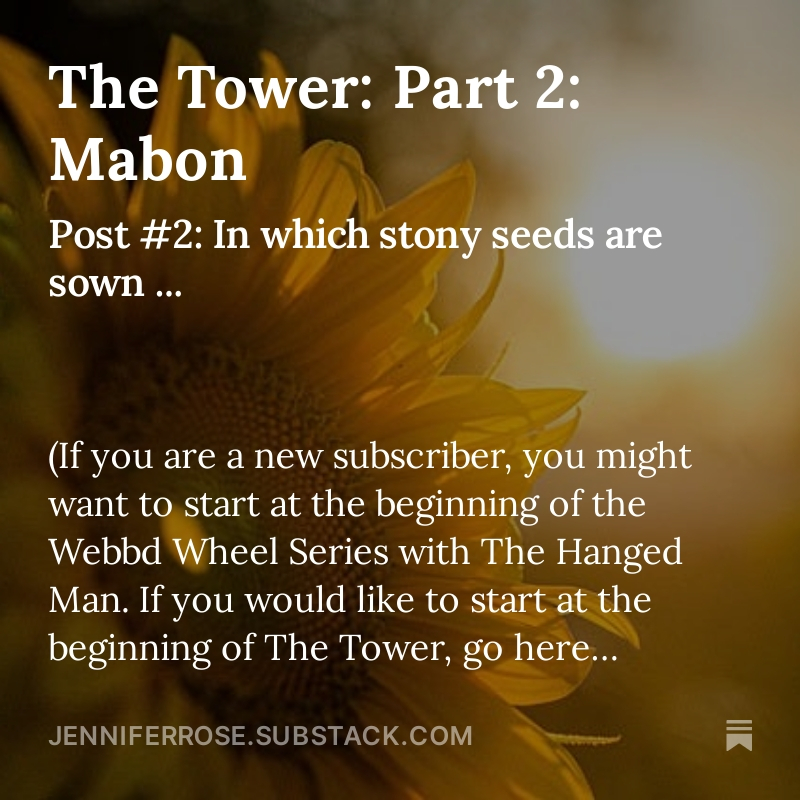
by Jenny Rose | Nov 4, 2023 | Emotional Intelligence, Feelings, Love
Elizabeth Gilbert is on Substack, and I follow her. Best known for her breakout novel, Eat, Pray, Love, she’s a journalist, speaker, and writer. Her Substack is called Letters From Love and more than ten thousand subscribe.
Letters From Love is the most uncomfortable Substack I read. I write that statement with wry humor. The premise is writing love letters to oneself.

Photo by Angelina Litvin on Unsplash
When I first came across it, I was equally horrified and attracted. I poked around, reading here and there, and realized quickly Elizabeth and I share certain experiences. I already knew this, because years ago I came across her brilliant piece on tribal shaming, which I immediately blogged about.
It takes one to know one.
When I found Gilbert on Substack I subscribed, so her newsletter comes regularly into my Inbox. Sometimes I ignore it for days, but sooner or later I open it and read. She posts love letters she’s written to herself. Publicly! She also has a podcast, does interviews, and posts love letters others have written to themselves.
(Cringe.)
I can’t help but notice my violent reactions. Me being me, I don’t choose to turn away and read something more comfortable. I have questions. What is my deal? I’ve been working for more than ten years on self-care and self-love, on reparenting myself and healing old trauma. Why am I not delighted with the idea of a practice of writing love letters to myself?
(Shudder.)
My first reaction is to crawl through the screen and beg her not to expose herself like this. Beg them all not to expose themselves. Don’t they understand how dangerous it is? Haven’t they learned a display of this kind of vulnerability will attract destroyers with stones and blades and (worst of all), terrible, terrible words of contempt? Oh, and don’t forget lethal indifference.
(If you’re not paying attention, I’ve now told you everything you need to know about the way I grew up.)
Except clearly the sky is not falling. More than ten thousand people are reading Gilbert’s love letters, and she goes on writing and publishing. The discussions within her community are neither indifferent nor contemptuous. On the contrary, they’re supportive and tender.
Which leads me to conclude my red alert reaction is about me rather than the practice of writing love letters to oneself.
Hm.
How can they do this? I wondered.
Could I do this?
No, no, no, not to publish! I reassured myself hastily. Just for me. Like my journal. My eyes only. A delete key. No one ever needs to know.
But there was a problem. Elizabeth writes to herself with endearments. Creative, funny, quirky endearments, like “my glinting little piece of foil from a gum wrapper.”
OK, now that’s fun! Words are so much fun!
What kind of endearments would I address myself with?
I’ve had pet names for my kids and my animals. No one else, really. Certainly not myself. My tone with myself has mostly been the harsh, hectoring, contemptuous, cold voice I internalized from the adults around me as a child.
More discomfort.
But, words … If I had a child just like the child I was, what endearments would make her giggle and feel loved and seen?
So I started a list of whimsical endearments. A very private list. So don’t ask! I was a little ashamed of myself, but no one else need ever know …
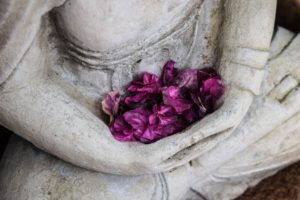
Photo by Chris Ensey on Unsplash
The list was fun, because it was a creative exercise. I can do creative exercise. It occurred to me part of my resistance to love letters (either giving or receiving) has to do with my disbelief in words. (Ironic.) Words can say anything. People say anything. The proof is in action. The older I get, the less interested I am in words, and the less I believe them. Demonstrate. Act. Show me, don’t tell me. As I’ve worked to heal I’ve developed routines for self-care, for eating well, for exercise, for sleep, for writing. I’ve been successful, and take much better care of myself than I ever have before. I take better care of myself than anyone ever has before, in fact.
But I haven’t written love letters to myself. I would have told you I could do so, if I wanted to. If I thought they’d have value. If I thought I’d believe them …
I grew up with emotional withholding. I’ve believed I’ve broken that pattern with my own children and my loved ones, including my animals. But now I wonder. Isn’t demonstration of love with no words a little sterile? I know the mixed message of loving words and abusive actions is devastating. Is active demonstration of love without words also confusing? Am I withholding from myself? Obligation, responsibility, duty – all these I’m very good at. But those are stony words. Where is the tenderness, the humor, the generosity? How about compassion? I feel those for others. I’ve spoken them from the heart; written love poems, love letters, notes, and cards – for others. Could I learn to feel and express them for myself?
Then I got sick with COVID, the events of the last couple of years (traumatic, protracted move; my mother’s decline and death) caught up with me, and I felt miserable. At once, I began putting pressure on myself to get back to writing, get back to work, get back to exercise, take out the trash, do the shopping, and generally pull myself together, because, after all, the world is full of bleeding, suffering people and I have a good life, a privileged life, and don’t deserve to feel sorry for myself and be lazy.
Not a love letter, in other words.
In the middle of the week during which I sat on the couch, alternately shivering and burning and blowing my nose, I wrote myself a love letter.
Well, maybe a let’s-see-if-I-can-tolerate-you letter.
It was an extremely strange experience. In fact, it made me cry, which didn’t help my congestion. Or my cough. At the time I had no sense of taste or smell, and I reflected that it was like that. When I tried to turn toward myself with love, tenderness, affection, whatever you want to call it, there was nothing. Just … nothing. A thick, numb shell between me and myself.
It made me so sad. Immediately upon the heels of that, I was ashamed. Because, you know, self-pity.
Almost as bad as self-love.
Wait now, what?
It’s bad to love yourself … if you don’t deserve it.
And, readers, I thought I’d left that belief far behind in the dust.
Then I began to feel angry, and I told myself I was going to start practicing writing love letters to myself. Because I deserved and deserve love as much as anyone else. I’m not important enough to be the most loathsome person in the world.
Questions:
- How does the idea of this practice make you feel? Can you write a love letter to yourself? With endearments and everything?
- If you could write a love letter to yourself, how would you feel about making it public?
- What do you most need to hear from someone who loves you? Would it have power if you wrote it to yourself?
Leave a comment below!
To read my fiction, serially published free every week, go here: 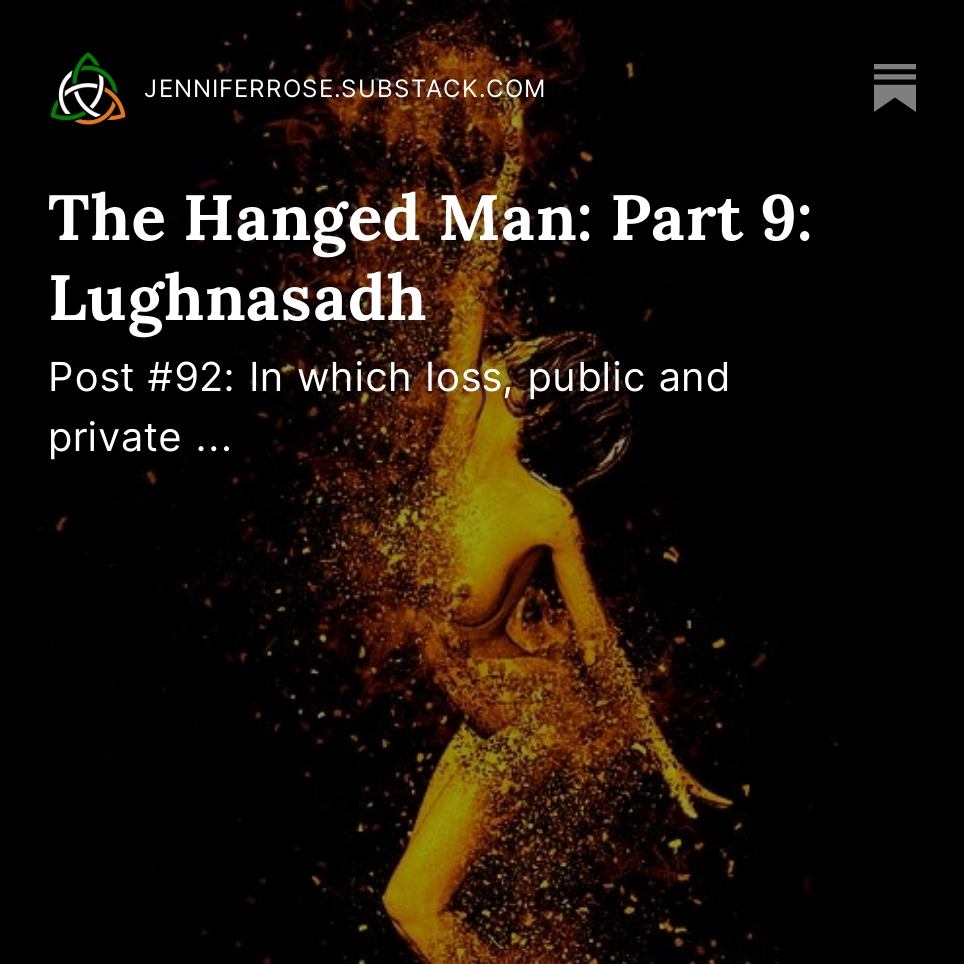
by Jenny Rose | Sep 9, 2023 | Choice, Power
I’m a spinner, a speeder, a thought racer. (Yes, I know it doesn’t help. I know rocking chairs and hamster wheels go nowhere. I know worrying is pointless.) Under the right conditions, the inside of my brain is like a dusty attic filled with hysterical cats zooming in all directions, climbing the walls, knocking over piles of junk, filling the air with dust and yowls. Chaos. Destruction. I call it speeding. I call it anxiety. The world calls it racing thoughts.
Whatever we call it, it’s a miserable state of mind, and a common one.

Photo by Quino Al on Unsplash
Herding cats, as any cat lover will tell you, never works. Sheep, maybe. Cows. But not cats.
However, at times familiar life goes off the rails in such varied, complex, and unforeseen ways I find myself once again herding cats, usually during the hours I need to be sleeping, though sometimes those hours bleed over into days when I’m supposed to be focusing. On something productive or something relaxing or something. But all I’ve got are catapulting (pun intended) thoughts and emotions racing around in my brain.
Not long ago, before the start of my current cat rodeo, I read somewhere (probably Substack) about The Rule of 9s. I’ve since gone back to look for it, but I can’t find the original source. Anyway, I didn’t come up with it myself. I wish I had.
The Rule of 9s is a tool used to identify what really matters. Or, if you like to look at things bass-ackwards, like me, what really doesn’t matter.
This morning, for example. I could garden, work on business at my desk, write, or make a Spotify playlist. I have just under two hours at my disposal before I head off to work.
I have a lot of desk business just now as my brother and I (mostly my brother) wind up my recently deceased mother’s estate and deal with our inheritance. By inheritance, I mean not just assets, but the inevitable emotional inheritance we all receive from our families of origin. What I’ve heard is true. When a parent dies, we cannot be prepared for the ways it changes us and how uncomfortable some of that change is.
My metaphorical cats – these mixed up thoughts and feelings — pull me in different directions at the same time. Everything feels overwhelming right now. It’s irritating. Two items on my grocery list and I’m overwhelmed. Now and then I have a few minutes free from the inundation, but I get a call, a text, another document to sign, and I’m overwhelmed again.
Fortunately, I just learned The Rule of 9s.
So, the option of gardening. It’s hot outside. Really, really hot and humid. Just when the weather should be getting crisper and cooler, a heat wave has arrived. It will ease in the next couple of days, but it’s brought a resurgence of mosquitoes and it’s not fun to be outside. So, no garden this morning. I’ll wait for cooler weather. Is that a crisis?

Photo by Morgan Sessions on Unsplash
Will gardening or not gardening matter in 9 seconds? In 9 minutes? In 9 hours? In 9 days? In 9 months? It might start to matter then, because I’ll be making spring plans and whatever progress I make this fall will affect those plans. But it’s clearly not urgent. I won’t remember choosing or not choosing gardening today.
Business at my desk. I’ve already done some of that this morning. Balanced the checkbook. Looked for a document I’m waiting on from my bank (not there yet). Made some notes. Did some planning. Considered options. I have money in my account. All the bills are paid. I don’t need to spend anything today. Will taking care of more business or not taking care of more business matter in 9 seconds? Nine minutes? Nine hours? Nine days? It might start to matter at that point, as one thing leads to another as we wade through this process. If I stay on top of tasks, step by step, I know I’ll eventually come out of the tunnel with effective systems in place that work for me and respect my goals and values. Tempting to start herding the cats quivering on my desk, but I only have two hours and nothing is urgent.
Make a Spotify playlist. I may shortly have an opportunity to bring a dance program to the community. I’ve tried several times in years past without success, but I haven’t given up hope. Now that I’m on Spotify (though I have misgivings about how platforms like this fail to support artists), I wanted to get a few of my dance playlists put together. I have them burned onto CDs and in iTunes, but not on Spotify. However, I don’t have any solid dates for dance now. It’s all in the planning stages. At some point it will matter, but not right now.
Writing. It’s my weekend to publish on Harvesting Stones. I don’t have to. It’s not required. But I’d like to, if for no other reason than it’s my usual routine, a stepping stone in the current chaos, and it comforts me to be doing something normal. Not to mention how much I enjoy it. Hard to think about focusing on it, though. All those cats whizzing around …
Will writing or not writing matter in 9 seconds? Nine minutes? Nine hours? Nine days? It won’t matter to the world, but it matters to me. It will matter to me in two days, when Saturday morning comes and I either do or do not have a rough draft I’m happy with.
So I’m writing. And while I’m doing that, miraculously, the other cats settle down. Tired, I guess. Maybe they’ll curl up in the chaos they’ve wrought and sleep a while. Sleep is good.
As I live my life and listen to the inside of my head, especially the anxiety, the fear, the resistance, the catastrophizing, I pull out The Rule of 9s and apply it. Will this matter in 9 seconds? In other words, will I die in 9 seconds if I don’t do whatever-it-is or figure it out, completely and perfectly? How about in 9 hours? (Have you ever noticed how crazy your nighttime I-can’t-sleep thoughts are in the light of day?) In 9 days will I even remember whatever feels stressful this minute? Will the fearful thing I can imagine happening be important in 9 weeks? In 9 months? In 9 years?
The Rule of 9s requires I slow down and think. The questions give me perspective, help me with a reality check. I stop reacting and remember my power to choose. I decide what’s more important than my peace of mind (not much). Hysteria is contagious; so is calm.

Photo by Ryan Moreno on Unsplash
Applying The Rule of 9s settles the cats right down. One or two may still zoom, because cats are contrary like that, but the chaos diminishes as I become intentional and mindful. I can find some focus, at least for a few minutes. I know what to do next, in the next 9 seconds, anyway. The next 9 years can take care of themselves.
Questions:
- What are your strategies for pulling yourself out of racing thoughts and anxiety loops?
- How do you choose priorities?
- Is your experience one of choice in life, or one of reaction and compulsion?
- Share something ridiculous that’s kept you up at night.
Leave a comment below!
To read my fiction, serially published free every week, go here: 